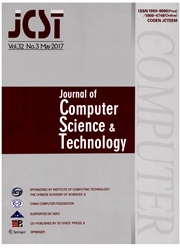

 中文摘要:
中文摘要:
这篇文章介绍观察源于六年的中国美国的计算机科学领导交换:向在过去比那更通用、基本的一门新计算机科学的出现的趋势。在 第21 世纪,计算机科学的领域正在经历基本转变,从它的范围,学习的目标,基本度量标准,主要抽象,基本原则到它到另外的科学并且到人的协会的关系,当继承想和知识的受过时间考验的身体的基本方法整个过去的 50 年积累了时。我们讨论与这个趋势有关的三个新概念。他们是计算透镜并且由美国科学家明白表示的计算的想,并且为群众的第三的计算由中国科学家求婚。我们考察这些概念的突出的特征,讨论他们的影响,并且总结未来研究方向。
 英文摘要:
英文摘要:
This article presents an observation resulted from the six-year Sino-USA computer science leadership exchanges: the trend towards the emergence of a new computer science that is more universal and fundamental than that in the past. In the 21st century, the field of computer science is experiencing fundamental transformations, from its scope, objects of study, basic metrics, main abstractions, fundamental principles, to its relationship to other sciences and to the human society, while inheriting the basic way of thinking and time-tested body of knowledge accumulated through the past 50 years. We discuss three new concepts related to this trend. They are computational lens and computational thinking articulated by US scientists, and ternary computing for the masses proposed by Chinese scientists. We review the salient features of these concepts, discuss their impact, and summarize future research directions.
 同期刊论文项目
同期刊论文项目
 同项目期刊论文
同项目期刊论文
 期刊信息
期刊信息
